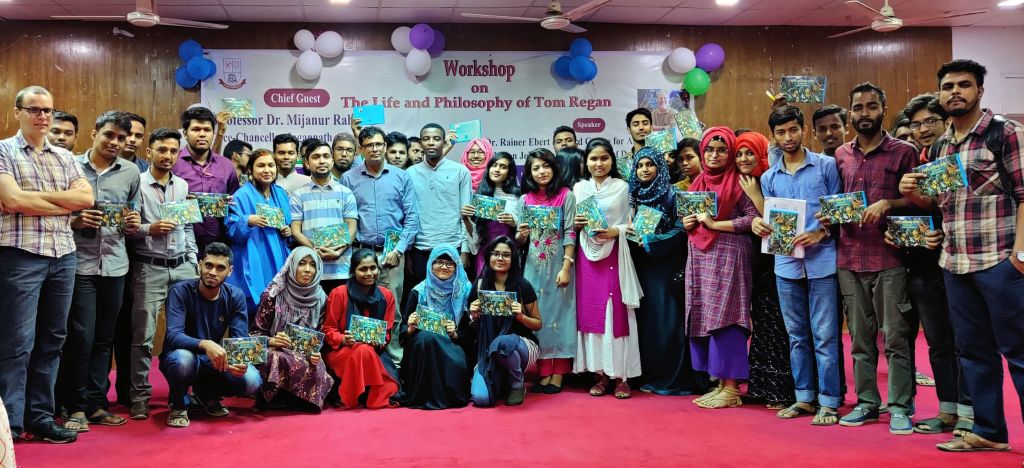Animal Liberation, a 1975 book by Australian philosopher Peter Singer, is widely considered one of the founding texts of the modern animal liberation movement. It develops a new ethics for our treatment of nonhuman animals, according to which their interests should be given the same consideration as the like interests of humans, and calls for an end to practices such as factory farming and animal testing. The book has had a lasting impact on generations of scholars and students and has influenced countless people in all corners of the world to adopt a vegan diet.
Almost half a century after its first publication, Animal Liberation is now finally available in Swahili! The book was translated by Deogratius Simba and published by Dar es Salaam-based publisher Mkuki na Nyota. It is available for purchase at the TPH Bookshop at 24 Samora Avenue in Dar es Salaam, and everywhere else where Mkuki na Nyota’s books are sold. The retail price is 30,000 TSh. If you are a student at the University of Dar es Salaam (UDSM), you can find a copy of the book at the library of UDSM’s Department of Philosophy and Religious Studies.
Continue reading “Ukombozi wa Wanyama”








